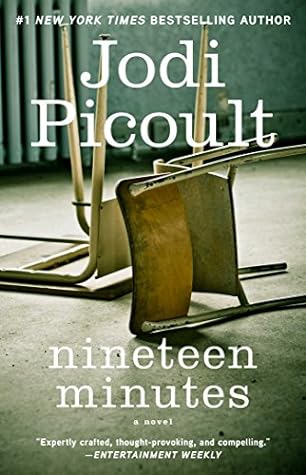More on this book
Community
Kindle Notes & Highlights
Her patient started weeping again—tears had a whole different melody, didn’t they, without the pain threaded through them?
Lacy would see instead a gaze wide with wisdom and peace—eight pounds of unadulterated possibility. Newborns reminded her of tiny Buddhas, faces full of divinity. It didn’t last long, though. When Lacy saw these same infants a week later at their regular checkups, they had turned into ordinary—albeit tiny—people. That holiness, somehow, disappeared, and Lacy was always left wondering where in this world it might go.
When she told him what she craved, though, he could not comprehend. She’d wanted to be in her own house, with nobody else in it, and nothing pressing to do.
Doctors put a wall up between themselves and their patients; nurses broke it down.
Statistics aside, Lewis would go down in history as being the economist who’d conceived a mathematical formula for happiness: R/E, or, Reality divided by Expectations. There were two ways to be happy: improve your reality, or lower your expectations.
After all, she had a husband who loved her and two healthy boys and a fulfilling career. Wasn’t getting what you wanted all along the very definition of being happy?
She let the conversation flow around her, as if she were a stone in a river,
he wasn’t used to dealing with tragedy in the course of his normal occupation.
He watched his father take the rifle back to the gun cabinet. “People who get upset about guns don’t know them,” his father said. “If you know them, you can handle them safely.”
A gun was nothing, really, without a person behind it.
She hadn’t understood that life left a person’s lungs first, and their eyes last.
He started wondering if there were exceptions to the rule: if happy people might be hopeful, if the unhappy might have given up any anticipation that things might get better. And that made Lewis think of his son. He stood in front of the blackboard and started to cry, his hands and his sleeves covered in fine white chalk dust, as if he had become a ghost. * * *
As Jordan had finished dressing Sam, he’d marveled at the mystery life must be for someone that young. Imagine a world that seemed so much bigger than you. Imagine waking up one morning and finding a piece of yourself you didn’t even know existed.
Josie used to think, when she was younger, that she would grow up to look like her mother—fine-boned, dark-haired, light-eyed. The combination of elements were all there in her features, but as she’d gotten older, she started to look like someone else entirely—someone she had never met. Her father.
There was a point where the events of your life became a tsunami; Lacy knew, because she’d been washed away once before by grief. When that happened, you would find yourself days later on unfamiliar ground, rootless. The only other choice you had was to move to higher ground while you still could.
And that was the greatest heartbreak of all—no matter how spectacular we want our children to be, no matter how perfect we pretend they are, they are bound to disappoint. As it turns out, kids are more like us than we think: damaged, through and through.
The great irony hadn’t escaped Alex: she was more like her father than he ever might have guessed. She felt comfortable in her courtroom, in a way she did not feel in the confines of her own home. She knew just what to say to a defendant who’d come in with his third DUI charge, but she couldn’t sustain a five-minute conversation with her own child.


